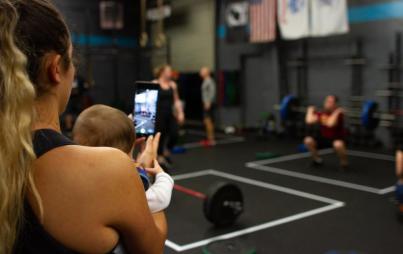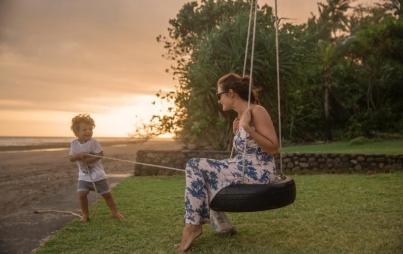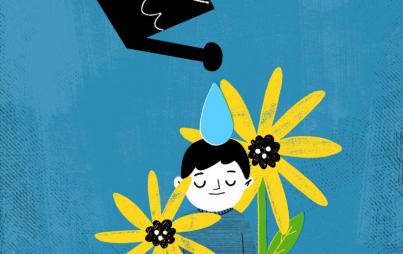
But aren’t there good zoos? I read about a zoo that worked hard to improve conditions for animals!
I’m an animal person, I always have been. When I was a little kid, I fiercely identified with the mice who snuck into my parents basement. Visiting friends and family members, I was more excited to see the family pets than any humans. And of course, I absolutely loved going to the zoo.
But as it turns out, the zoo is pretty awful. And despite my pleasant memories, I will not be taking my kid there. If you take your kids to the zoo once in awhile, I don’t think you’re a monster, but for me it is a hard moral line that I won’t be crossing.
♦♦♦
I just can’t take my child to the zoo. I can’t do it. I know it’s considered a quintessential childhood activity, an entirely wholesome place, and (as one friend put it) "Just a really good walk." I get it. Yes, I liked going to the zoo as a child. No, I’m not a heartless evil mother who never wants her child to have any fun. But he will not be going. Not for a school field trip. Not with Grandma. Not for a playdate with a friend. My child is not going to the zoo. Full stop. End of discussion.
Why?
In essence, the same reason I won't be taking him to Sea World, or the circus, or the rodeo, or the running of the bulls. I believe that exploiting animals for the entertainment of humans is wrong, and I don’t want him to normalize it.
Zoos are often not a very happy place for the animals that live there. They often live in enclosures that are far too small for them, don’t have proper socialization, and eat diets inappropriate for their species. Zoo animals often develop anxiety and depression. Zoos are not built or designed to keep animals healthy and happy; they essentially treat animals like objects. What they are designed for, though, is for humans to walk through at a leisurely pace and see as many animals as possible. It’s all about human convenience and enjoyment. And it isn’t for something necessary, such as food, it’s purely for entertainment.
But aren’t there good zoos? I read about a zoo that worked hard to improve conditions for animals!
There are zoos less harmful to animals, and there are more of them than ever, and that is probably a good thing for the animals who live there, sure. But first of all, that doesn’t change the premise that taking my child to the zoo would be prioritizing his desire (to see cute animals) above the animals’ needs. A few improvements are certainly better than nothing, but they are not enough to change my mind. And secondly, “better” in these cases often means “still very bad.” We’re so used to seeing wild animals enclosed for our own enjoyment, that when we see an elephant in a “larger” enclosure that supposedly mimics their natural habitat, we compare it to the small concrete cages that used to be the normal (and still are some places!) rather than to the number of miles a wild elephant roams every single day.
But what about conservation? Isn’t it important to save endangered species and don’t zoos play a big part in that?
For whom are we saving them? Certainly not for themselves. Can you imagine a giant panda saying, “Well, I am being artificially inseminated against my will repeatedly, and all of my offspring will live their entire lives in captivity and never know what it is to be free, but at least we won’t go extinct! Thank goodness for these clever humans for forcing me to reproduce!” No. Conservation without re-release into the wild (and that is what most breeding programs are) is not doing anything for the animals themselves.
When pressed, most people will say that we need to breed these animals “for future generations.” They mean for future generations of human children to gawk at in zoos. So the cycle continues.
Actually, I think we are “saving” all of these animals, not for the school children of tomorrow, but for the zoos themselves. Zoos are businesses. In a capitalistic society, businesses need to make money and grow to stay alive. They sell more tickets if they have a wider variety of animals, more exotic and endangered animals, and of course, baby animals.
OK, but zoos are educational!
No, they’re not. I’m sure everyone is going to have an exception to this, but I have never heard a child talk about what they learned at the zoo. They talk about what they learned about animals from books and TV shows, but not from going to the zoo. Oh sure, zoos have educational materials strewn about, but that’s not where the focus is, because again that’s not where the money is. Zoos are designed for human enjoyment.
At best they are marginally educational, sometimes. And even so, the same education could easily be gleaned through other sources without exploiting animals.
Zoos are also dangerous for both humans and animals. Think about it. We’re bringing large varieties of wild and often dangerous animals into small spaces in the middle of densely populated cities. It’s a recipe for disaster, and disaster does happen.
♦♦♦
I cannot financially support any zoo as an institution, and I don’t want my kid growing up thinking that this kind of treatment of animals is acceptable, just because going to the zoo is fun.
Instead, I want him to grow up respecting animals as other beings with just as much right to a happy life as he has. I want him to learn about how they live in the wild, and I want him to understand what human irresponsibility is doing to wild animals and why we want to stop it. He can’t understand those things if I say animals should be free, but my actions speak otherwise. Kids are smarter than that. I believe my kid is smarter than that. The fact is, even if going to the zoo did not directly support the abuse of animals (it does), I couldn’t be an honest parent and say “Oh, look at that gorilla!” at the zoo without also saying, “She is living in poor conditions and eating an improper diet and probably depressed and sexually abused, because what else are we to call those forced breeding programs, all so that we can have the pleasure of staring at her!”
And that doesn’t sound like fun for either of us.








